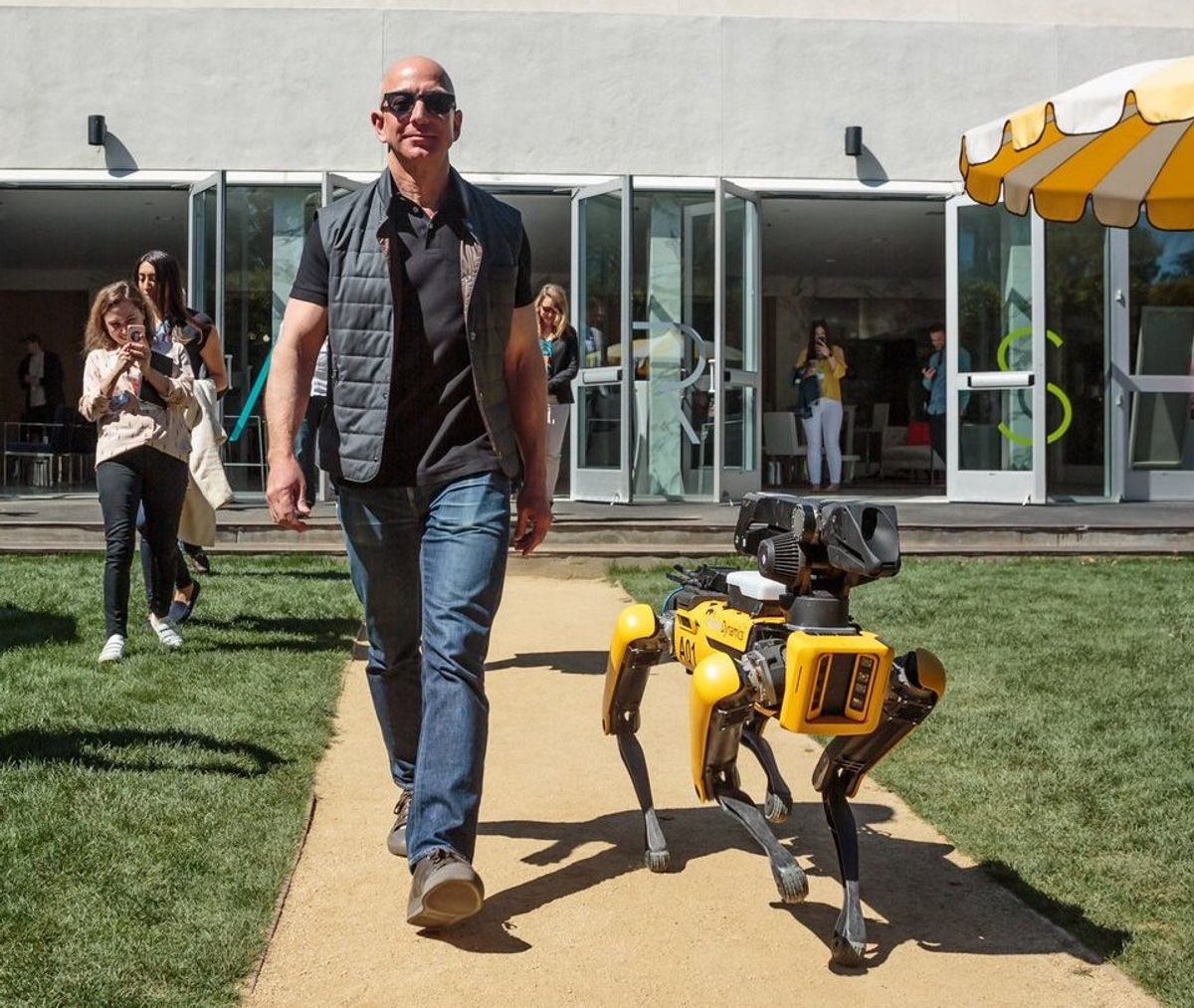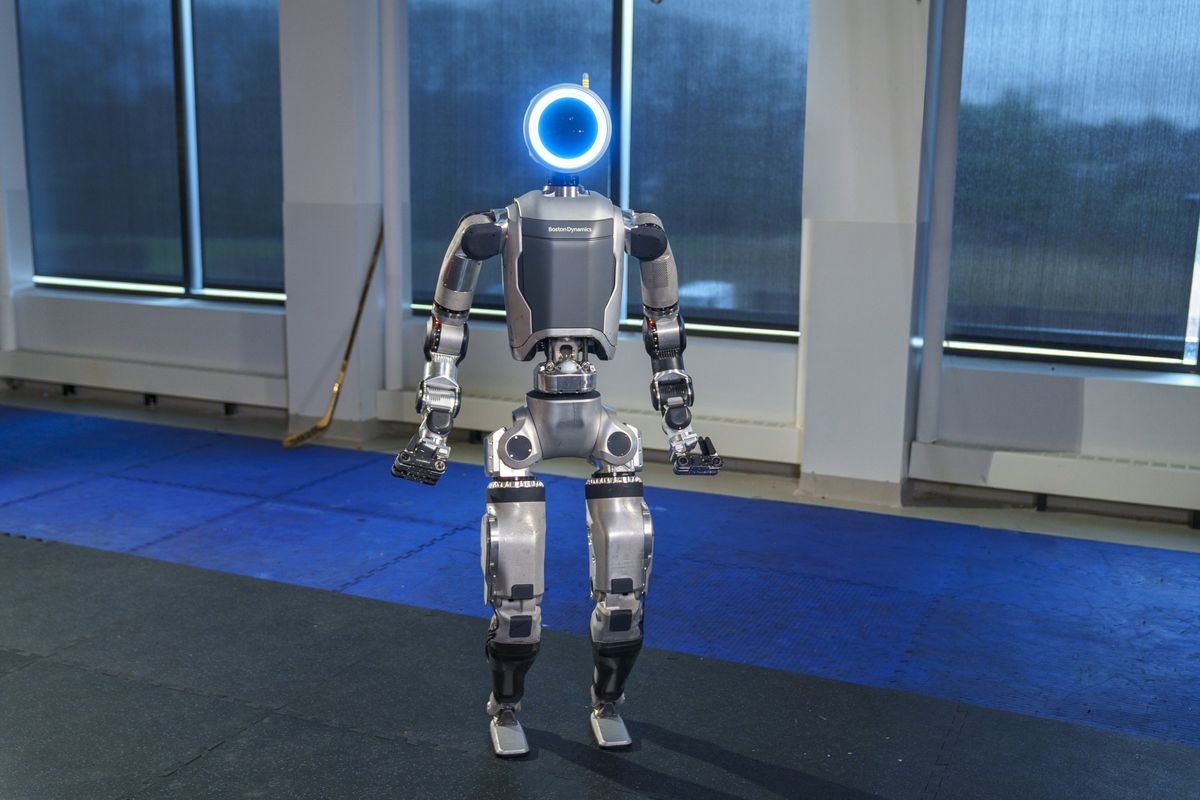Yesterday, Bloomberg broke a story that Amazon’s Lab126 research and development group in San Francisco has been working on some kind of mobile home robot. It’s not a huge surprise to see Amazon throwing its R&D budget at more robots, and a home robot is a perfectly logical thing for them to take a crack at. The question is, what kind of robot is Amazon building, and what will it be able to do? While we’re obviously hoping for an affordable, useful robot, it won’t be easy, and Amazon will have a lot of work to do to make something successful.
We should point out up front that at this point the amount of tangible information here is quite limited. As far as I can tell, this is what Bloomberg (or anyone else) has been able to uncover about the project:
- Amazon’s Lab126 is working on a “domestic robot” called Vesta
- Vesta prototypes use cameras to navigate autonomously
- Lab126 has been trying to hire lots of roboticists recently
- Amazon employees might start testing the robot in their homes by the end of the year
Now, what kind of domestic mobile robot might Amazon want to make? The only thing the Bloomberg story mentions about that is this:
“People familiar with the project speculate that the Vesta robot could be a sort of mobile Alexa, accompanying customers in parts of their home where they don’t have Echo devices.”
Let’s tackle that last bit about the Echo first. I can understand why it’s tempting to speculate about a mobile Echo, but I would be surprised if that’s what Vesta’s primary functionality actually was. An Echo Dot costs $50, meaning that you could buy 10 of them and place them all over your house (including up and down stairs) for less than what even a fairly cheap mobile robot would cost, and they’d probably do a much better job for you. This is not to say that a mobile home robot from Amazon wouldn’t include Echo functionality, but my guess is that Amazon has a more compelling idea than “let’s build a mobile Alexa.”
So if we’re going to do our share of speculation, we should start with taking a look at what other domestic mobile robots are out there, and what they do. Vesta would be in the same general category as some high-end robot vacuums (Neatos and Roombas with navigation cameras), along with robots like Kuri, Misty, and TurtleBot, and also telepresence systems like Beam. These robots each leverage some combination of mapping, sensing, and human-robot interaction, as well as varying degrees of usefulness, but what kind of hybrid approach would Amazon be most interested in? Presumably, Amazon has been following the market on mobile home robots, which suggests a couple of points based on consumer responses. Namely:
- Personality can be compelling
- Useful functionality is more important
This is why robot vacuums have been the only really successful mobile home robot so far. It’s not that the problem of vacuuming is inherently easy to solve (it isn’t)—it’s that vacuuming is long-term useful, and it’s a well defined task that a robot can reliably do pretty well. Personality can help, but initial reactions to Jibo in particular suggest that success really depends on long-term usefulness (and we’ll have to see what happens with Kuri).
If we assume that Amazon is making usefulness a priority, what could it do with an autonomous mobile robot? iRobot CEO Colin Angle, who knows way more about this than we do, has suggested a whole bunch of ways in which a robot that understands things about your home could be useful. Here’s his take on this from an interview we did with him last year:
A [mobile robot could be a] spatial information organizer. There’s a hub with a chunk of software that controls everything, and that’s not necessarily the same thing as what the robot would do. What Apple and Amazon and various smart home companies are doing is trying to build hubs where everything connects to them, but in order for these hubs to be actually smart, they need what I call spatial content: They need to understand what’s a room, and what’s in a room for the entire home. Ultimately, the home itself is turning into a robot, and if the robot’s not aware of itself, it can’t do the right things.
So, if you wanted to walk into a room and have the lights turn on and the heat come up, and if you started watching television and then left the room and wanted the television to turn off in the room you’d left and turn on in the room you’d gone to, all of those types of experiences where the home is seamlessly reacting to you require an understanding of rooms and what’s in each room. You can brute force that with lots of cameras and custom programming for your home, but I don’t believe that installations like this can be successful or scale. The solution where you own a Roomba anyway, and it just gives you all this information enabling your home to be smart, that’s an exciting vision of how we’re actually going to get smart homes.
Of course, if Amazon can beat iRobot to the punch on this, the solution will instead be that you buy a robot from Amazon instead (maybe it will even vacuum?). Amazon’s advantage here is that they already have hubs (backed by smart home ecosystems) in people’s homes, and if they add a robot that can learn more about how you live, they can use that information to make it easier and more convenient for you to, you know, buy stuff.
Would a robot like that be useful to a consumer, especially if it was paired with Alexa and imbued with some sort of personality? Sure, I guess. But I’m not yet convinced that it would be useful enough to be cost effective for consumers. Mobile robots are inherently complex, expensive things, and I’d be surprised if Amazon comes out with something that costs much less than US $1,000. If it does cost substantially less, that’ll be because Amazon is subsidizing it, meaning that you’re paying them in other ways, most likely by allowing the robot to collect data. And that’ll raise a lot of security and privacy questions.
If Amazon can solve these challenges, it’ll certainly be exciting to see what it comes up with, and if they manage to find a unique and valuable use case that doesn’t require me to give up what little digital privacy I have left, that would be awesome.
[ Bloomberg ]
Evan Ackerman is a senior editor at IEEE Spectrum. Since 2007, he has written over 6,000 articles on robotics and technology. He has a degree in Martian geology and is excellent at playing bagpipes.



